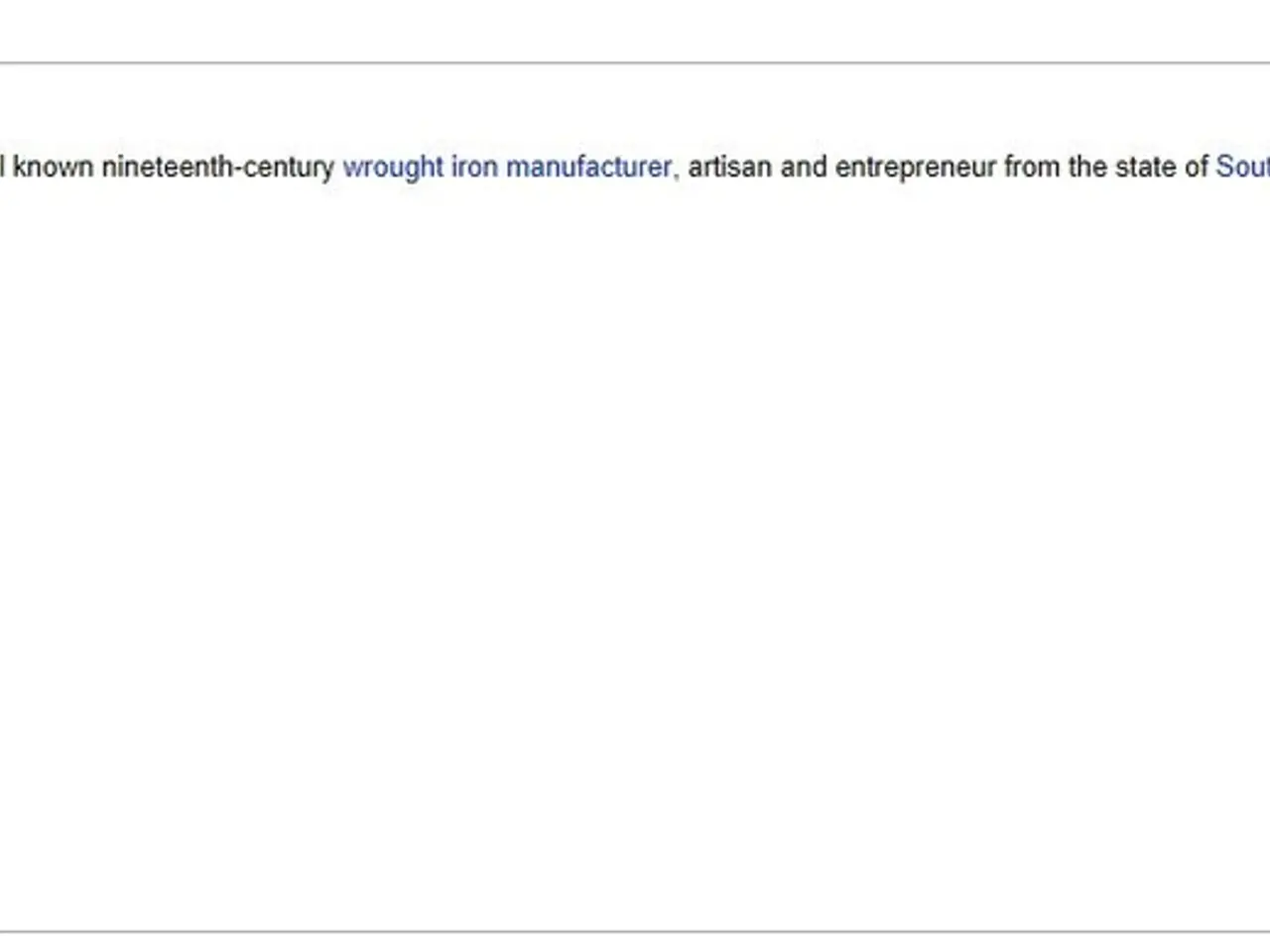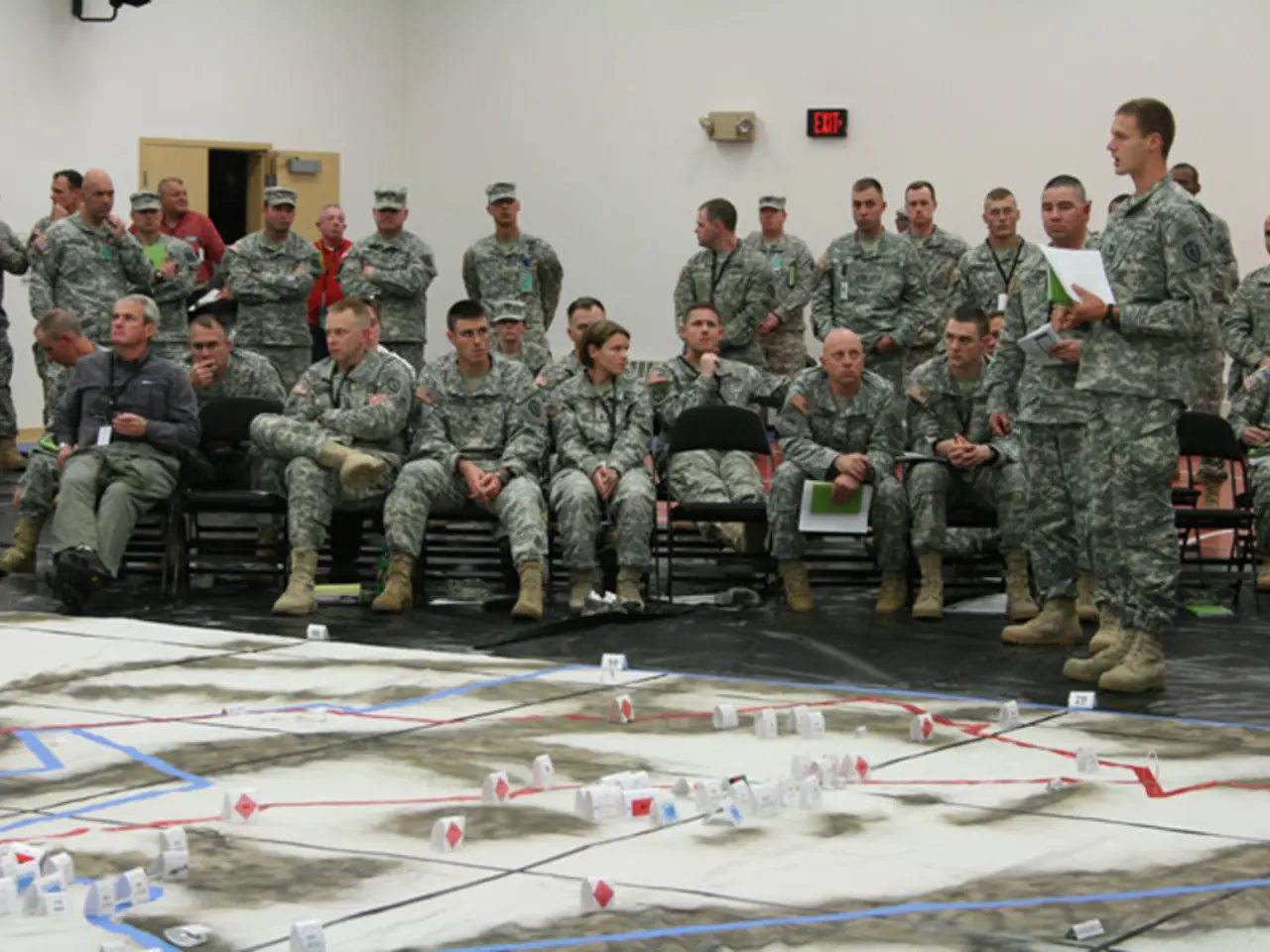U.S. President Trump reveals nuclear submarine deployment following Medvedev's caution regarding America
In a strategic move aimed at deterring further nuclear saber-rattling, the United States has deployed two Ohio-class nuclear submarines near Russian waters in response to the ongoing Russia-Ukraine conflict.
These submarines, ballistic missile submarines (SSBNs) armed with Trident II nuclear missiles, form a critical part of the U.S. nuclear triad, ensuring a credible second-strike capability should nuclear conflict arise. Ohio-class subs can carry up to 24 Trident II D5 missiles, each with 14 independent nuclear warheads, and have autonomy to operate for 15 years at sea, making them almost undetectable due to their design prioritizing absolute stealth.
The deployment serves as a clear signal of U.S. readiness to respond decisively to any escalation, potentially defusing escalating rhetoric and deterring Russian nuclear threats. However, it also increases tensions between the U.S. and Russia, raising risks of miscalculation or escalation.
Russia and China have simultaneously conducted joint naval drills involving anti-submarine warfare, which some interpret as a counter-move to U.S. submarine activity, reflecting increased military competition and regional instability.
The deployment underscores the broader geopolitical contest involving nuclear posturing. For example, it coincides with unrelated but connected developments such as U.S. economic measures against India over its ties with Russia, indicating a multifaceted strategy to isolate Russia internationally.
The long-term implications of this deployment include ongoing reliance on these legacy systems for strategic deterrence, while modernization efforts continue. Ohio-class subs are aging and are planned to be gradually replaced by the Columbia-class starting in the 2030s.
Meanwhile, the Russian Army has confirmed the capture of Chasiv Yar, a strategic stronghold in Donetsk, and President Vladimir Putin has broken his silence regarding Trump's ultimatum, but has avoided any direct reference to the U.S. president.
In a diplomatic move, the Ukrainian delegation in Istanbul has offered a meeting between Putin and Zelenski at the end of August. Russian Foreign Minister Sergei Lavrov values dialogue with the U.S., despite Trump's ultimatum, describing it as "very useful."
As the conflict continues, Belarus, a key ally of Moscow, will receive missiles in 2026, while Putin has confirmed the possession of the new hypersonic missile Oreshnik, capable of reaching speeds of Mach 10. Belarusian President Alexandr Lukashenko warns of a possible Russian advance towards Kramatorsk, the heart of Ukraine's military industry.
The USS Ohio, one of the deployed submarines, has been active in the Pacific this year, docking in Brisbane, Australia this week as part of a maneuver to reinforce U.S. military presence in the region. The US special envoy, Steve Witkoff, is scheduled to travel to Moscow in the coming days to try to unblock the dialogue.
[1] Nuclear Information Project [2] Arms Control Association [3] Defense News [4] Bulletin of the Atomic Scientists
- The deployment of Ohio-class nuclear submarines near Russian waters, equipped with Trident II D5 missiles, might impact the average number of war-and-conflicts-related articles in general news, as it increases political tensions and raises the risk of miscalculation or escalation.
- Despite the ongoing Russia-Ukraine conflict and increased military competition, international dialogue remains crucial, as demonstrated by the Ukrainian delegation's offer for a meeting between Putin and Zelenski at the end of August, which was valued by Russian Foreign Minister Sergei Lavrov. Such diplomatic efforts could potentially affect political and general news in future.







